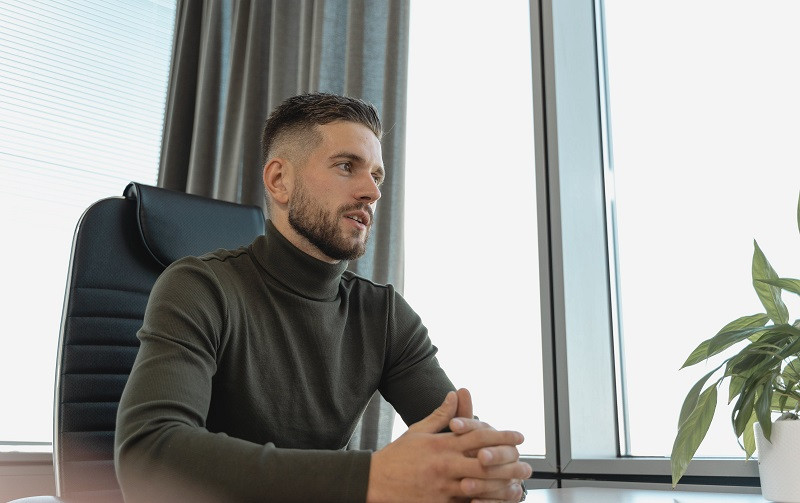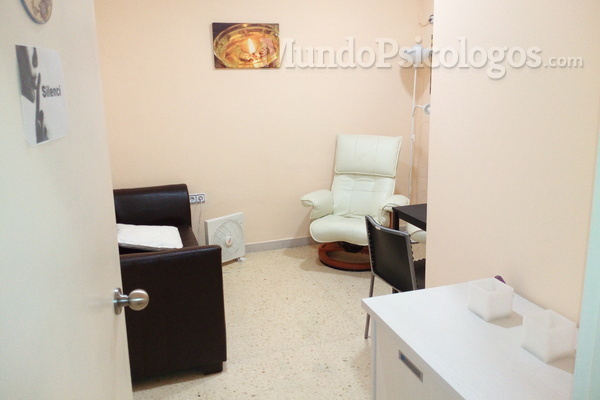Attending a job interview is a situation that normally tends to make most people tense and nervous, since we know that we are going to be valued and that whether or not we are selected may depend on this first impression.
For this reason, it is important that you prepare well for such an event, to increase your confidence and security and to get an idea of what they may ask you.
A typical question that the interviewer usually asks is what we believe are our weaknesses, or our greatest weakness The need to answer such a question can be scary, since we are expressing a negative quality or one that is not well valued in us, but if we know how to express it, it can work in our favor, increasing our credibility and benefiting us in the selection process over others. candidatures.
In this article we ask you some questions that you should take into account before attending a job interview and How should you prepare for the possibility of being asked about your weaknesses?
How to talk about your defects in a job interview?
Who has not gone through a job interview? It is normal that when we are looking for a job we have to meet with a worker recruiter or an employee of the company or place where I want to work, so that they can assess if we are valid and have the characteristics they are looking for for the vacant position.
A job interview in itself already makes an impression and tends to create anxiety and tension, It is normal for us to feel nervous, since it is presented as a situation where we will be evaluated and judged It is the first contact with a person who works in the company where I would like to join and it will also be decisive in whether or not I can get the job. For this reason, it is important that we face the situation safely and prepared for the different issues, questions, that may arise.
Although a question or topic may arise in the interview that we did not consider, normally these types of selection interviews follow a fairly similar pattern to each other, that is, they tend to be posed in a similar way. For this reason, It will help you prepare how you would respond to some of the points that are sure to arise, in order to increase your security and self-confidence and adopt effective strategies and try to make sure that we say everything we want to communicate to the interviewer.
Even so, by preparing the answers to the possible questions we do not mean to pose the answer in a concrete way, with this we mean that we must think about how we would like to answer, what points we want to appear in our answer, but not what our answer will be as is. , with semicolons, since it is better to leave room for flexibility and to be able to give the answer according to the question they ask us. Since we do not know for sure what the interviewer will ask us, it may be good for us to think of different points that we want to highlight and adapt to different possible formulations.

Not only in job interviews; In our lives in general it is difficult for us to express our weaknesses, to make our weak points known, since We believe that if we show or make known our negative or less valued traits, these will cause rejection in the other person But contrary to this belief, if we know how to adequately communicate our weaknesses, they can help and benefit us even when we want to get a job.
Recognizing our weaknesses increases our credibility since everyone has weak points and therefore knowing how to express and raise them does not harm us, but quite the opposite, we present ourselves as someone who is aware of their traits and gives truth to the other answers given, that we are not hiding information, since As we have said, we all have negative traits and not saying them means that we want to hide them or worse yet, that we are not aware of them.
Thus, in order to get to know ourselves better, it is very likely that in a job interview they will ask us about our greatest weakness, to try to catch us by surprise and see how we respond to this question, but since we have already anticipated this question, it can also be play in our favor.
Recommendations for communicating your weaknesses in a job interview
Below you will find some recommendations to prepare yourself and know how to face the typical question of “what are your weaknesses?” in a job interview.
1. Ask yourself what your weaknesses are specifically in relation to the job
It is obvious that in order to adequately answer the question of what our greatest weakness is, we must first know what our weak points are, but always taking as reference the job offered The answer must provide relevant information in the context of personnel selection, because if it does not do so, it will indicate problems in offering information that fits what the company asks for, and that reduces our value as candidates.
We must not lose sight of the fact that we are in a job interview and, therefore, what the interviewer is interested in is knowing what we are like in the workplace. So when you answer regarding your strengths and weaknesses, it is important that you refer to issues or traits that you can apply or are linked to work, otherwise the answer will not make sense.
We must go further and specifically look for a quality or characteristic of ours that is specifically related to the job for which we are applying, given that it thus becomes more relevant.
If you are not sure what these points are, It can help you to write in a notebook situations or events in which you think you did not act well and see why such a circumstance occurred.
In this way, apart from knowing ourselves better, we can also take the opportunity to consider what actions we could do to improve our weaknesses and how to adapt so that they do not affect us as much or have negative consequences. Which brings us to the next tip.
2. Turn around weaknesses
Knowing your weaknesses also gives you the option of being able to propose how to improve them or how you have evolved and progressed positively, ensuring that they do not harm you or hold you back. In this way we also show the interviewer that Apart from recognizing all our traits, we have solutions so that the negative or weaker aspects improve or do not affect us as much do not harm work.
Showing that we are decisive and that we can have good ideas to solve possible problems will work in our favor and will help to achieve a better evaluation, since the important thing is not not to have weaknesses, but to know how to manage them. We are taking advantage of weaknesses to reveal a strength such as knowing how to face and solve problems.
3. Mention your weaknesses without ignoring the question
When we raise our weaknesses It is much better not to lie or try to hide them by answering the question with a trait that is actually a strength It is common to use responses such as “I am very perfectionist”, which actually avoids the need to talk about one’s weaknesses by expressing a strength as if it were an imperfection, thereby causing us to lose credibility.
It is better that you truly indicate what you think is your most relevant weakness, giving an example and context in which this characteristic is expressed in the workplace and, as we have said before, take the opportunity to propose what solution you have found so that it does not affect you.
4. Know the position you aspire to
Being honest and expressing your weaknesses does not mean you have to self-sabotage. It is important that you know what values, characteristics, traits, they seek and prevail in the company or position for which you are applying, since in this way you will ensure that your answer does not mean your elimination as an applicant. For example, if you want to get a position where order is very important, having everything organized, it may not be the best option to say that you are very messy.
Be skillful and present a sincere weakness, but without it harming you, for this reason apart from knowing yourself it is also recommended that you know the place you want to get and that you can combine both criteria
5. First weakness, then strength
It is advisable that if you are asked about a strength and a weakness of yours, you first state the weakness and then the strength. In different psychology studies about how memory works or functions in different situations, it has been observed that When it is relevant to remember information in the present moment, right after giving it, it is better that we give the important information at the end , since a recency effect occurs; we remember better the last thing that was said. In this way we ensure the message that has the most strength, regardless of the redundancy, is that of our strengths.
- You may be interested: “Personal SWOT matrix: what it is, parts, and how to do it”
6. Don’t use too strong words
Another point to consider when expressing your weaknesses is to try not to use words like “always” or “never”, since they are totalitarian words, that is, they they express that something is given or is not given continually in a way Therefore, it is better that you use expressions like “sometimes” or “from time to time”, that is, they do not imply that such behavior always appears.









